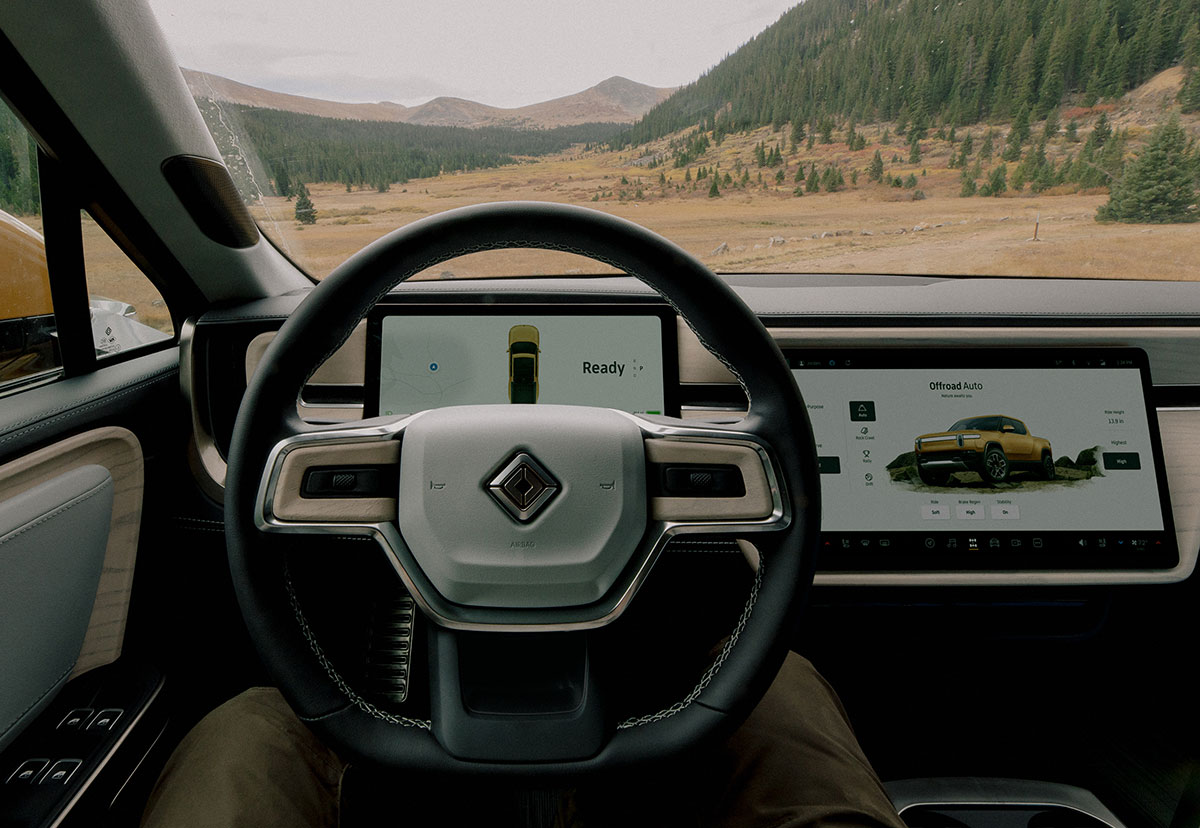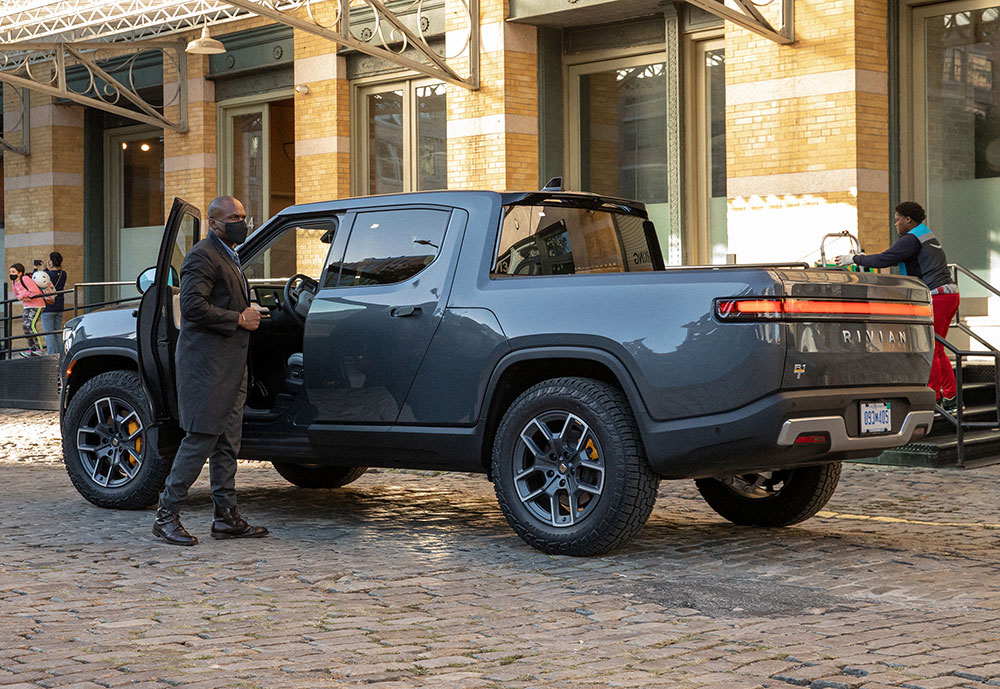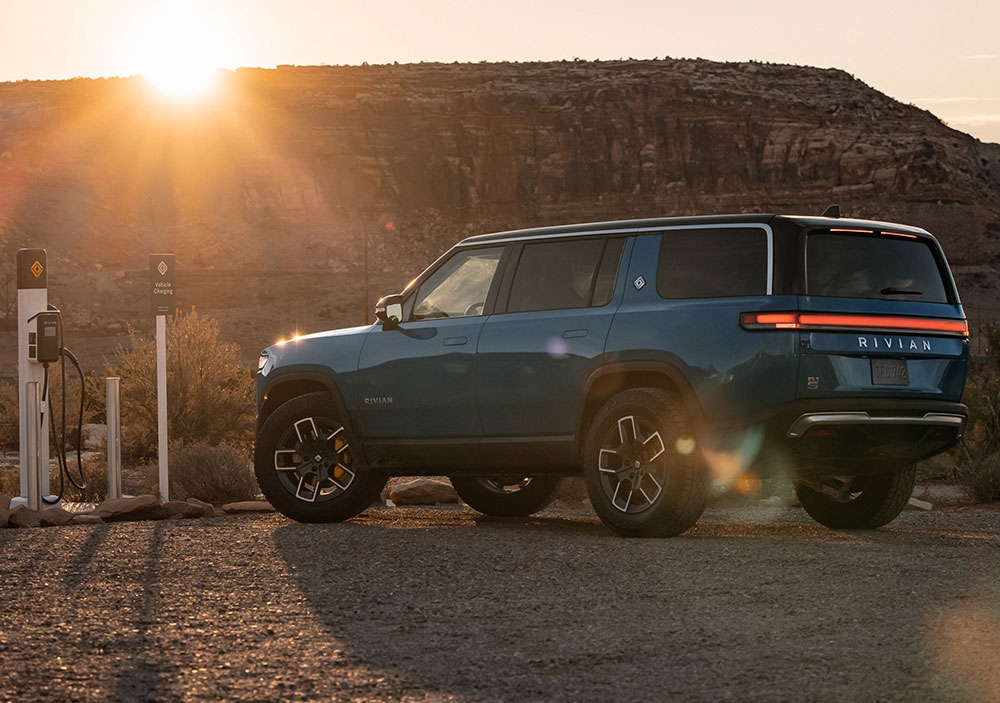Are investors farsighted or foolhardy? A little of both, in our view—but there’s no question that Wall Street believes in an electric future. EV startup Rivian went public last week, raising nearly $12 billion to give the company a valuation of around $77 billion. Since then, RIVN stock has soared, making the company one of the world’s most valuable automakers.
As of this writing, Rivian is worth more than Daimler, GM or Ford, which owns a 12% stake in the startup. Another dubious distinction: Rivian is now the most valuable US company with no revenue (Lucid previously held that coveted title).
The company has just begun producing its R1T electric pickup truck, and so far, it has delivered only a handful. However, it claims to have some 55,000 reservations for the pickup and the R1S SUV, and has big ambitions to produce 1 million vehicles by 2030.
It’s an impressive start, but not unexpected. Ever since it stole the show at the 2018 LA Auto Show, Rivian has been considered the cream of the latest crop of startups. The support of Amazon, which owns a chunk of the company, and has ordered 100,000 electric delivery vans, is a huge asset. CEO R.J. Scaringe is by all accounts extremely well-qualified, and has thus far shown no tendency to alienate supporters with stupid public statements, or to embroil his company in shady scandals. The fact that Rivian chose to take the traditional IPO route, instead of the low-budget SPAC shortcut, only adds to the company’s air of seriousness and respectability.
Rivian is off to an excellent start, but now it must navigate the Valley of Death—that is, it has to ramp up production enough to start bringing in revenue before investors lose patience and cut off the cash spigot. The ramp-up will consume billions of dollars over the next couple of years—Rivian said in a financial filing that it did not expect to fulfill the 55,000 orders for the truck and SUV until the end of 2023. The Amazon deal should help, providing a handy cash cushion that (for example) Tesla never had. Amazon hopes to have 10,000 of the Rivian e-vans on the road next year.
Rivian’s target customers are wealthy and adventurous, and so are its investors. A successful Rivian is precisely what the EV industry needs at this moment—an all-electric rival for Tesla and an additional goad for the Dinosaurs of Detroit. Let’s hope Rivian can “keep the world adventurous forever.”
Sources: Electrek, New York Times, Al Jazeera, CNBC




















































